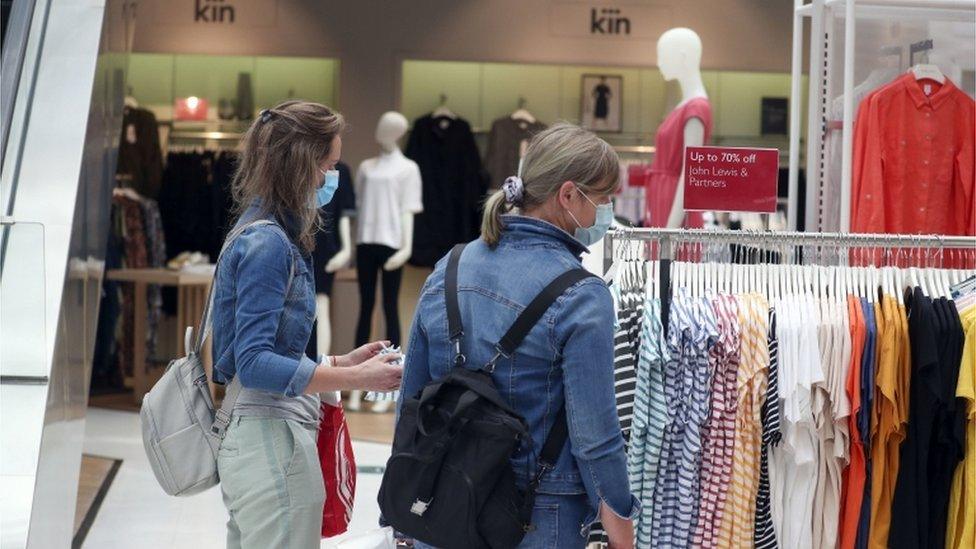John Lewis scraps bonus for first time since 1953
- Published
- comments
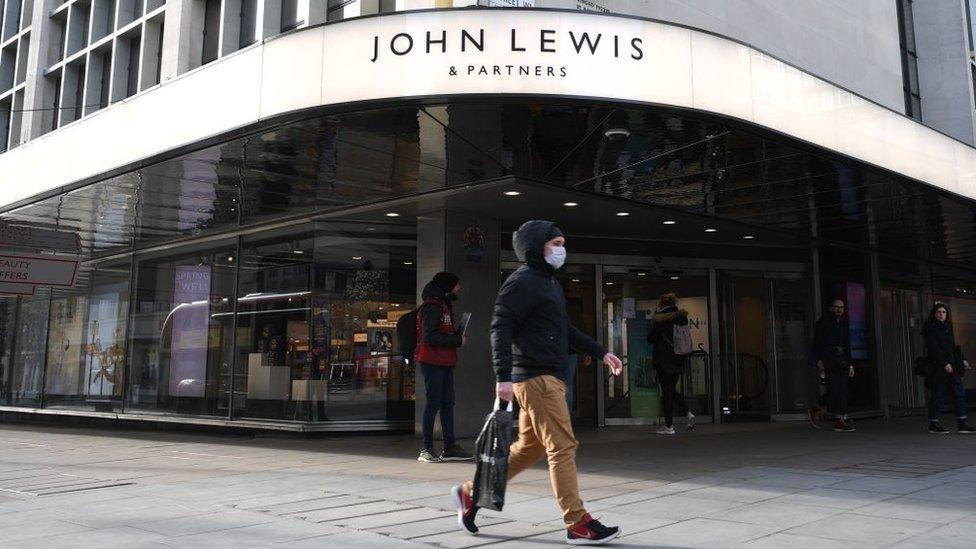
John Lewis has confirmed that staff will not receive a bonus for the first time since 1953 after it was hit by lockdown store closures.
The retailer - which also owns Waitrose - posted a huge £635m pre-tax loss for the six months to 25 July after higher costs offset a 1% rise in sales.
Its chairwoman told staff on Thursday the announcement "will come as a blow".
Even before Covid-19 hit, the chain had warned it might not pay the usual staff bonus as competition ate into profits.
The group's first-half loss was £635m once exceptional items were taken into account, including a £470m write-down in the value of its stores.
Excluding those one-off costs, the group's loss in those six months stood at £55m.
The last time that the chain, which operates as a partnership, decided not to pay a bonus to its staff was in the aftermath of World War Two.
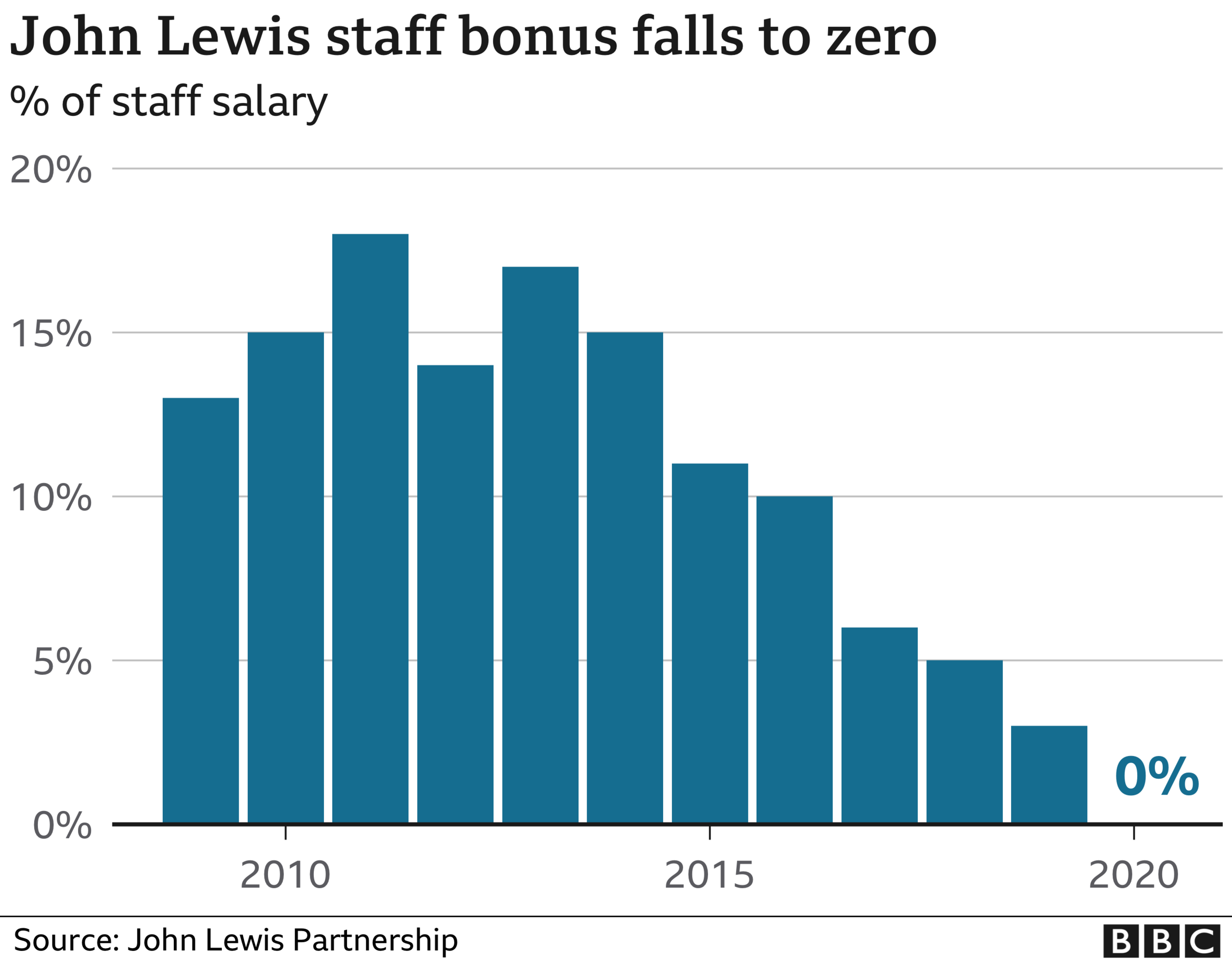
Chairwoman Dame Sharon White said: "We came through then to be even stronger and we will do so again."
She added: "I know this will come as a blow to partners who have worked so hard this year. The decision in no way detracts from the commitment and dedication that you have shown."
The payment of bonuses will only resume once annual profits rise to above £150m and debt falls, she said.
The retailer said store closures during lockdown and customers buying less profitable items, such as toilet paper or laptops, had hit trade.
It estimated that in its first half, John Lewis shops saw a £200m drop in sales, while the wider group saw additional coronavirus-related costs total about £50m.
But in a statement, it said that its Waitrose supermarkets had seen "a return to the weekly shop", with like-for-like sales up 10% year-on-year.

A 'whopping' loss

John Lewis has had a whopping half-year loss. But it was mainly down to some big one off costs, including a £470m impairment charge against the value of its department stores, reflecting the fact that they don't play as big a role as they used to.
Stores have a halo effect in boosting online sales. Many shoppers browse before going home and ordering online. Before the crisis, John Lewis thought its department stores helped generate around £6 of every £10 spent online. John Lewis now thinks that figure is nearer £3.
Eight John Lewis stores have closed, costing the business another £105m.
These results lay bare the impact of the pandemic. But the the company says this is better than what it expected in April. John Lewis makes most of its profits in the second half of the year. Christmas is key. With the outcome still very uncertain, it now thinks the most likely outcome is a "small loss or small profit" for the full year.

Changing shopping habits
Dame Sharon said the pandemic had brought forward changes in consumer shopping habits "which might have taken five years into five months".
At John Lewis stores, online sales surged by 73% in the six months to 25 July, "helping to offset the impact of shop closures". They now account for more than 60% of sales overall for the department store chain, up from 40% before the pandemic hit.
The group added that a shift towards increased home working had affected people's purchases, with increased sales of tablets and TVs, while sales of trousers had declined.
The chain also said that Waitrose was now delivering about 170,000 weekly food orders - up from 60,000 pre-lockdown - and the demand had risen since its partnership with online grocer Ocado ended in August.
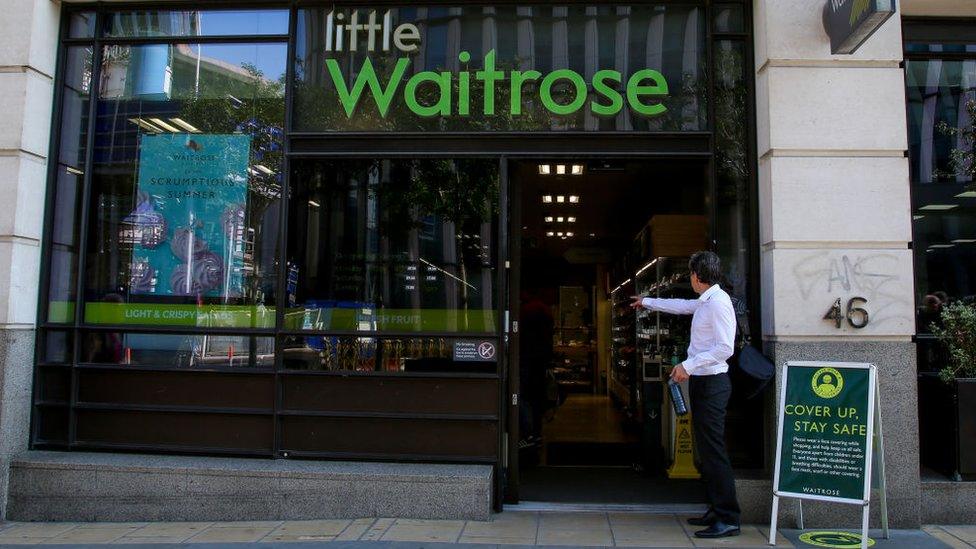
Waitrose has seen a "return to the weekly shop", the John Lewis group said
Having struggled to manage competition from online rivals and slower consumer spending, the group has, however, recently announced plans to shut stores.
In July, it said it would close eight John Lewis stores, in a move which put 1,300 jobs at risk. And this week it announced it would close four of its Waitrose supermarkets, with the loss of 124 jobs.
It also recently said it was reviewing its famous "never knowingly undersold" price pledge, which has been in place since 1925. The commitment never applied to sales from internet-only retailers, which have lower costs and often undercut the High Street on price.
Looking ahead, Dame Sharon said that the outlook for the second half was "clearly uncertain", given the wider coronavirus crisis.
She also emphasised that the Christmas trading period would be "particularly important to profits" for the group.
On Thursday, John Lewis also confirmed that it had opened its Christmas shop early this year. Sales of Christmas trees and baubles were both "markedly" up on last year, it said.
- Published23 August 2020
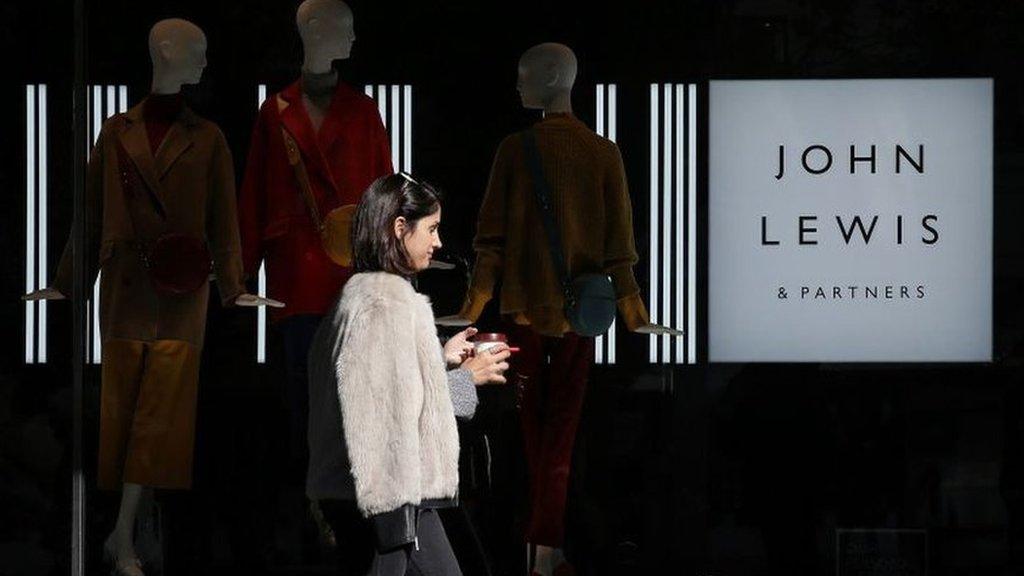
- Published11 July 2020
